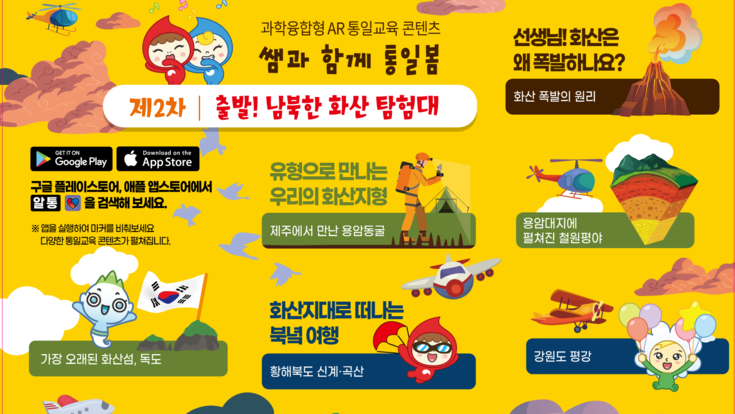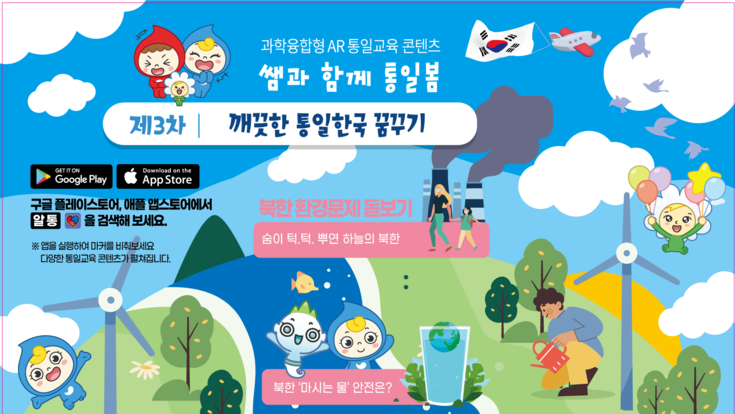Joint Projekt
“Unification Spring with Teacher”
The first of three thematic areas focuses on biodiversity and the protection of the Korean Peninsula, to which the Hanns Seidel Foundation also contributes significantly through its diverse project work. A particular focus is on tidal flats and wetlands, which host almost 40% of our global plant and animal species. Unfortunately, in the last 50 years, 66% of tidal flats in the Yellow Sea have disappeared, representing a significant loss for this important East Asian ecosystem. However, there is hope: Both the DPRK and the ROK have initiated measures to enhance the protection of these wetland habitats. The HSF supports the efforts of the DPRK, for example, contributing to the preservation of these important habitats. In the ROK, examples of successful conservation efforts include Yongneup of Mt. Daeam, the Upo Wetland Reserve, and the Jangdo Island High Moor, which together make up 20% of the Korean Peninsula's area.

Another focus of the working poster is on the protection of migratory birds. These fascinating creatures are inseparable from the wetlands they rely on as their primary ecosystem. The Hanns Seidel Foundation Korea is passionately committed to protecting these valuable beings. An example of our commitment is the InterFlyways Workshop held during the CMS-COP14. Another is our support of the East-Asian-Australasian-Flyway Partnership, which works to protect the Asian-Australian migratory routes.
The DPRK has also joined this important cause, actively advocating for migratory bird protection since 2018, including the establishment of two migratory bird reserves in Northern Korea. Collaboration between the Korean Peninsula and other states is essential to ensure the future protection of migratory birds along their routes. Together, we can make a difference and contribute to protecting these wonderful birds and the ecosystems they depend on.
The second working poster takes us on a journey into the volcanic world of the peninsula. Particularly interesting is Mt. Paektu, the largest volcano in the DPRK, and its potential impacts in the event of an eruption. Mt. Paektu is not only a natural wonder but also a unique habitat for a variety of species. Therefore, the protection of this delicate ecosystem is of great importance. Prof. James Hammond of the Mount Paektu Research Center is one of the leading researchers studying Mt. Paektu and conducting field research. Last year, Prof. Dr. Seliger and Prof. Hammond met, providing an opportunity to discuss the issue and highlight the concerns of the Hanns Seidel Foundation, particularly regarding the importance of the volcano's ecosystem.

The third working poster, titled "Dreams of a Clean, United Korea," aims to introduce children to the concept of environmentally friendly reunification. By asking questions such as "Is the drinking water in the DPRK pure?" or "What should happen to the deforested mountains in the DPRK?" important environmental issues are conveyed playfully. At the same time, realistic questions help children build a stronger connection to the DPRK. The game "Find the Other Picture" directs attention to environmental issues and helps children understand, among other things, the deforestation policy of the DPRK. The consequences of deforestation have long been a concern for many people. Therefore, the HSF is committed to raising awareness of this issue and developing solutions.

Dr. Seliger participated in the conference "International Risk/Resilience Management in Socio-Ecological Systems" organized by the Institute of Environmental Science and Ecological Engineering at Korea University. In his presentation "Wetlands and Forests for ecological resilience in the DPRK," Dr. Seliger emphasized the importance of ecological resilience. "Dreams of a Clean, United Korea" aims not only to inform children about environmental issues but also to encourage them to think about an environmentally friendly reunification and develop their solutions.
The HSF referred to the Green Belt in Germany as a model for green peace in the joint project. The Institute for Peace Affairs and the Hanns Seidel Foundation, in their collaboration, playfully highlight the themes of reunification and environmental protection, helping students look towards the future in an environmentally friendly way.
